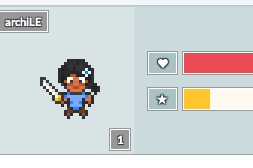Client: Architecture of Learning Environments course
Time frame: 15 weeks
Date: May 2015
Problem: 1 in 20 public school students in New York City is homeless (ICPH. “An Unstable Foundation: Factors that Impact Educational Attainment among Homeless Children,” Retrieved from http://www.icphusa.org/index.asp?page=16&report=116&pg=121). Students who are homeless and/or are staying in different places different nights struggle in school. These students often don’t have a good environment in which to study. They also may be switching schools more frequently than other students and so may miss out on certain subjects because the schools are teaching different curricula. To compound these issues, teachers may not know which students have moved frequently, or are experiencing homelessness. Even if the teachers do know, they may not know how best to support those students, or don’t have the resources to give them the attention that they need, particularly if there are many students experiencing homelessness at the school.
Target Audience: 6th-8th grade students in New York City with unstable housing
Goals:
- Impact Goal:
- Help students with unstable housing do better in school, and not repeat grades
- Learning Goals:
- Students will learn to advocate better for themselves
- Students will be able to identify resources (people, places, programs, etc) that can help them get support they need
- Students will be more self-aware learners
- Students will learn effective study strategies
- Students will be able to identify studying/learning strategies that are particularly effective for them personally
- Students will be able to articulate their own learning styles, strengths and weaknesses
- Students will be able to identify environmental factors that help them learn and will feel comfortable seeking out spaces that are conducive to learning/doing homework and/or working to modify spaces to better suit their needs
- Students will learn to advocate better for themselves
Solution design:
Virtual Coach is, as its name implies, a virtual learning coach (mobile and browser-based) app to help provide some consistency and also help students learn skills to be better independent learners. Virtual Coach is based some on the existing framework of the open source app/service Habitica (fka HabitRPG). The game framework of it incentivizes habits like setting weekly goals (regardless of whether they’re achieved), recording homework assignments, estimating time it takes to complete a task, and also reflecting regularly on all of these and other activities.
The learner creates an avatar, who has a certain amount of health. Damage is done to the avatar if the learner ignores tasks like writing down assignments or setting goals. As the learner completes those tasks, they gain experience points (XP). When they gain a certain number of XP, their avatar levels up. As with many other games, the amount of XP required to level up increases with each new level. The mobile version of Virtual Coach will also have reminders to help the learner remember to complete different tasks.
Virtual Coach also has quests that learners can choose to embark on. The quests each have a different focus. For instance, the New School Quest, is intended to help a student adjust to switching schools midyear, something many students with unstable housing situations experience. This particular quest includes tasks like “Ask a teacher how you can find out what assignments you’ll have each week” since some teachers have the week plan posted some place physically or online, and a student might not know where if they joined the class late. There is also a place for the student to record information and reflections they have on completing the task (e.g., “The bulletin board always has the week plan for Science class” or “Mr. O’Connor seems really nice and offered to explain the new homework to me after class”). The quests would each have a different in-game challenge overall (e.g., fighting a dragon). Completing the tasks in the quest would defeat that challenge, and defeating that challenge would get them special rewards like rare items for their avatar to wear, in addition to the XP and gold from completing the individual tasks and reflections.
“To develop the expertise needed for lifelong learning, we argue that students need to reify, reflect on, and improve their cognitive, social, and metacognitive processes. Introducing software advisors that incorporate models of such processes has the potential to facilitate students’ sociocognitive and metacognitive development.” (p. 1, White, et al., 2002)
The reflections, as well as predicting time for tasks (and reflecting on how accurate the predictions were) are all based on ideas for developing metacognitive skills and awareness (Schraw, 1998). These skills will help students become more self-sufficient learners, which can help them to rely less on the unpredictable infrastructures in their environments.
The entire design document can be found here.
